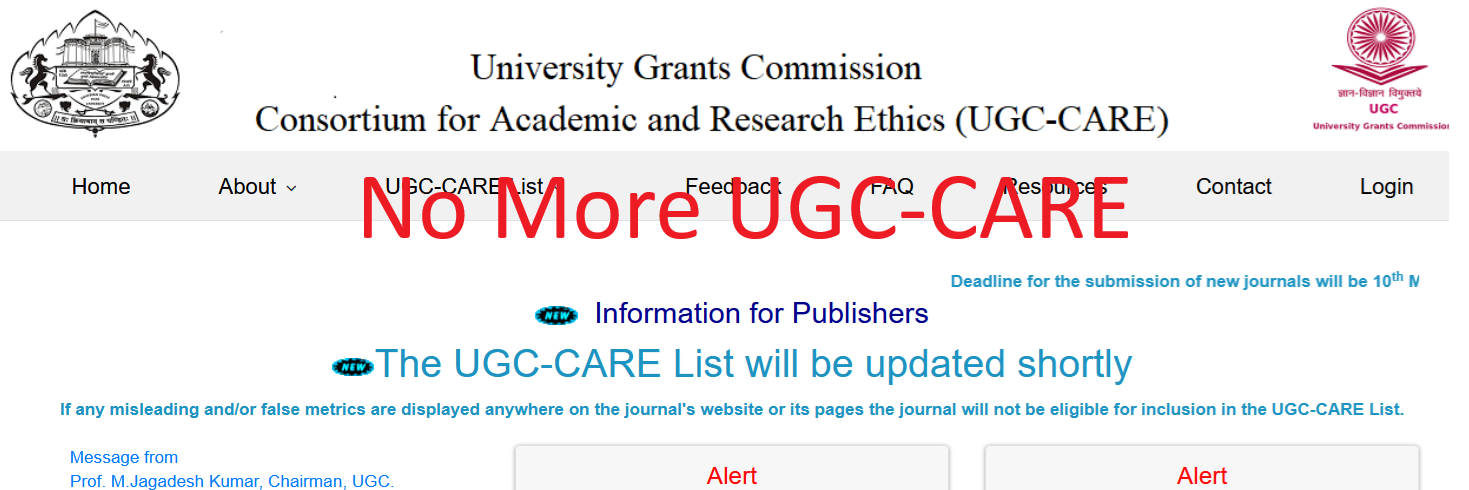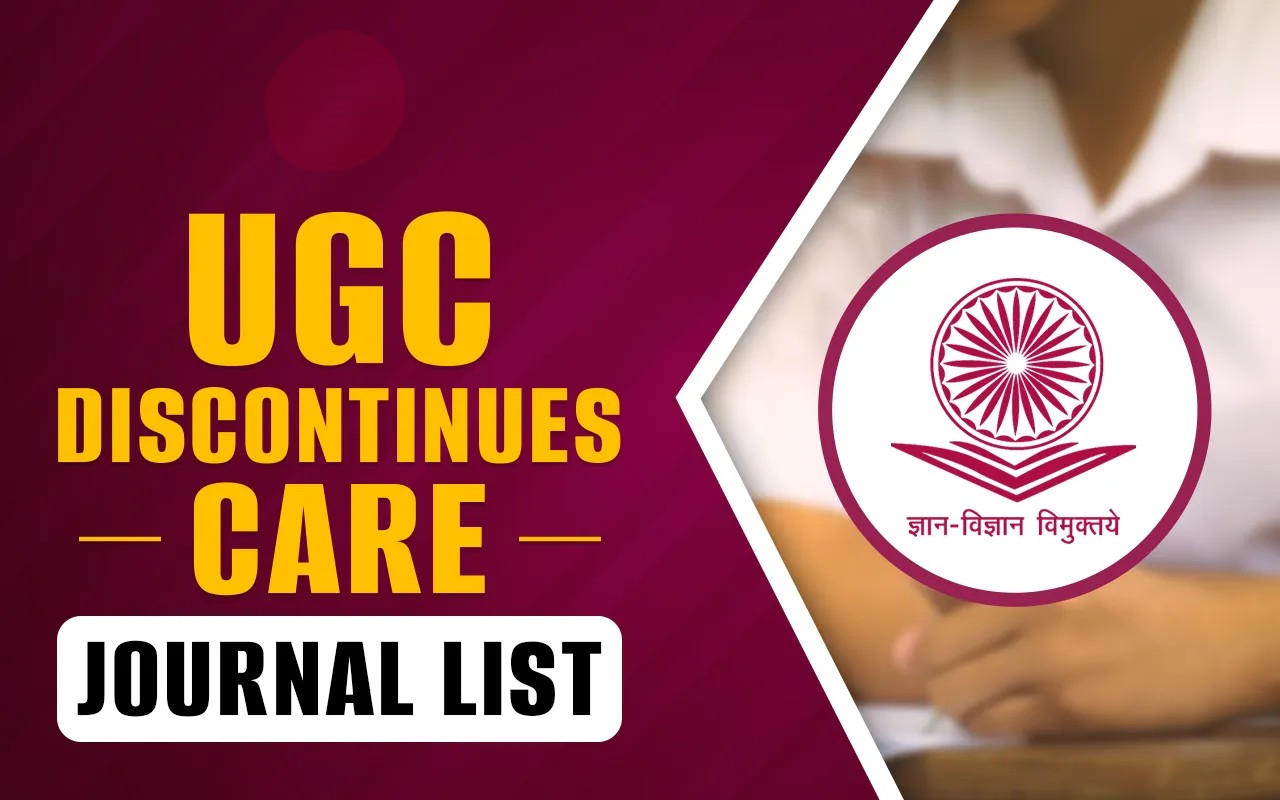UGC Discontinues CARE List Journals, Introduced Decentralized Evaluation Model

In a sweeping reform of India’s academic publishing landscape, the University Grants Commission (UGC) has officially discontinued its UGC-CARE journal listing. This decisive move, announced following the Commission’s 584th meeting on October 3, 2024, marks a departure from a centralized system that many critics argued was overly subjective and inefficient. Instead, the UGC is shifting towards a decentralized evaluation model that empowers Higher Educational Institutions (HEIs) to assess and recognize research journals independently.
Rationale Behind the Change
The UGC-CARE list, initially introduced in 2018 to safeguard research quality and curb the proliferation of predatory journals, had come under intense scrutiny. Academicians and researchers alike voiced concerns over the opaque decision-making process, delays in updating the list, and the inadvertent inclusion of substandard publications—often at the expense of credible, regionally significant journals. UGC Chairman M. Jagadesh Kumar highlighted that the over-centralization in journal evaluation was stifling academic freedom and contributing to inconsistencies in research assessment.
Key Features of the New Evaluation Framework
Under the new guidelines, UGC has proposed a set of suggestive parameters for selecting peer-reviewed journals. The criteria encompass:
- Preliminary Requirements: Journals must possess a valid ISSN, maintain regular publication schedules, and exhibit robust archival practices.
- Editorial and Review Standards: A qualified editorial board with clearly stated affiliations is essential, along with rigorous peer review processes and transparent timelines for manuscript evaluation.
- Ethical Publishing Practices: The framework mandates adherence to high ethical standards, including stringent plagiarism checks, clear disclosure of conflicts of interest, and guidelines for managing AI-generated content.
- Impact and Visibility Metrics: Evaluation will also consider citation records, impact factors, and indexation in reputed national and international databases.
By decentralizing the evaluation process, the UGC is entrusting HEIs with the authority—and responsibility—to tailor journal assessment to the unique needs of their disciplines. This approach is expected to enhance academic rigor while simultaneously reducing bureaucratic delays.
Empowering Higher Educational Institutions
One of the standout features of the new policy is the empowerment of HEIs. Institutions are now encouraged to develop their own internal mechanisms for journal evaluation that align with established academic norms. This decentralization not only offers greater flexibility in recognizing emerging and interdisciplinary fields but also ensures that universities can adapt evaluation criteria to address regional and subject-specific challenges.
Furthermore, the UGC has opened the proposed guidelines for public feedback, inviting faculty members, researchers, and academic institutions to submit their suggestions via email until February 25, 2025. This consultative process is seen as a critical step in refining the evaluation parameters to better serve the evolving needs of India’s research community.
Anticipated Impact on the Academic Ecosystem
The discontinuation of the CARE list and the adoption of a decentralized model are expected to bring significant changes across India’s academic ecosystem:
- Enhanced Research Quality: With a focus on ethical practices and robust review mechanisms, researchers can now select publication venues that truly reflect their work’s merit.
- Increased Academic Freedom: By moving away from a one-size-fits-all list, scholars are empowered to choose journals that best match their disciplinary needs and research objectives.
- Mitigation of Predatory Practices: Decentralized evaluation places the onus on HEIs to guard against predatory journals, ensuring that only reputable publications contribute to academic advancements.
UGC’s reform is widely viewed as a progressive step toward aligning India’s research standards with global best practices, ultimately fostering a more dynamic and credible academic publishing environment.
Looking Ahead
As the UGC paves the way for a decentralized journal evaluation system, higher educational institutions now face the dual challenge of establishing transparent, efficient evaluation mechanisms and maintaining high ethical standards. The success of this initiative will largely depend on how effectively HEIs can adapt to these new responsibilities while continuing to nurture innovative research.
With the public consultation period in full swing, the coming weeks will be critical in shaping the final contours of this policy shift. Academicians, researchers, and institutional leaders are urged to actively participate in the feedback process, ensuring that the new system not only remedies past shortcomings but also sets a robust foundation for the future of academic publishing in India.






